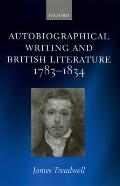Cooper, Coleridge, and More in James Treadwell’s Advent

In its starred review for James Treadwell’s Advent, Publishers Weekly concluded, “Readers of Susan Cooper and Alan Garner will rejoice to find the first of a new trilogy worthy of sharing their shelf.” I know that’s especially gratifying for James since Cooper’s The Dark Is Rising was a touchstone for both of us growing up.
Our Q&A continues with an unseasonal discussion of the weather.
We’ve talked about winter scenes in English fantasy fiction before: Narnia under the White Queen, the blizzard that shuts down Buckinghamshire in The Dark Is Rising. Are you drawing on that tradition?
It would probably be more accurate to say that it’s drawing on me, if that doesn’t sound too affected … The instances you mention are certainly two of the most powerful fixed points in the imaginative geography I grew up with. (A third would be the snowbound planet called Winter in Ursula K Le Guin’s The Left Hand of Darkness.) I didn’t deliberately set out to echo them, but then that’s not how influence works, is it?
If my landscape made anyone think of The White Witch or Will Stanton and the Dark Rider, I’d be very happy indeed.
Advent starts with an epigraph from Coleridge:
If a man could pass through Paradise in a dream, and have a flower presented to him as a pledge that his soul had really been there, and if he found that flower in his hand when he awoke—Aye! and what then?
How did you pick that quotation, and what does Coleridge mean to you?
In my former life I spent a fairly long time thinking quite intensively about Coleridge, though I don’t think that’s relevant to my book. The significance of the epigraph in relation to Advent is the unanswered — unanswerable — question into which the little visionary story collapses. Coleridge’s work has a genius for that. He’s the patron saint of tellingly failed endings.
TOMORROW: Questions of influence, and polite tussling about our different approaches to storytelling.
[The photograph above shows one of James’s sons in London back in the surprising winter of 2009.]



No comments:
Post a Comment